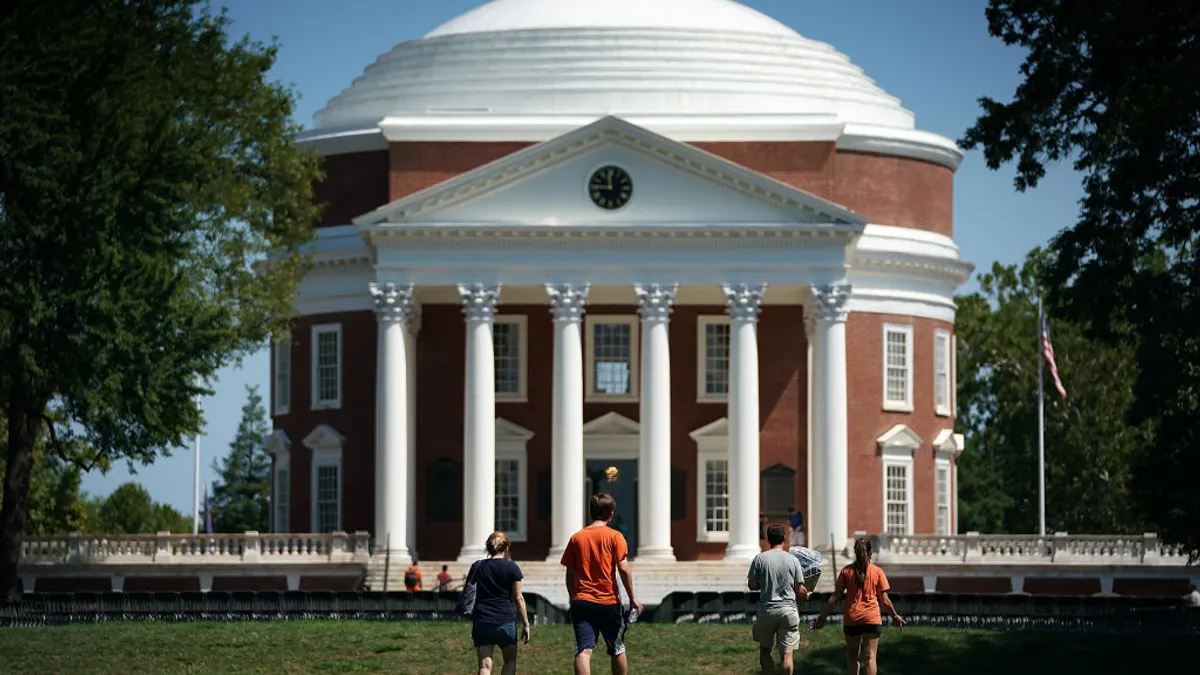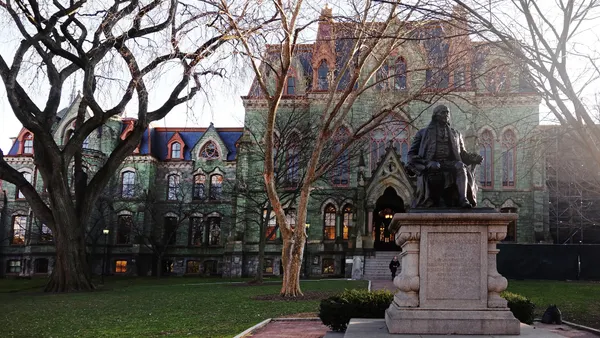Dive Brief:
- A pair of Kentucky bills introduced this month by Republican lawmakers could weaken tenure and diversity, equity and inclusion efforts, dramatically reshaping higher education in the state.
- One proposal, HB 424, would impose "performance and productivity" reviews on faculty and presidents at public colleges and limit employment contracts to four years at those institutions. The bill cleared the House's higher education committee on Tuesday.
- Another bill, HB 4, would prohibit public colleges from using any funds for DEI efforts. If passed, the state's public colleges would be required to cut all DEI positions and offices by the end of June.
Dive Insight:
College leaders in Kentucky have been bracing for legislative changes that would overhaul the higher education landscape, as Republican lawmakers have sought to remodel the sector.
If passed, HB 424 would require every faculty member to be evaluated at least once every four years via a process established by their institutions' governing boards. College presidents would not be excluded — they too would face the proposed review system.
Failure to meet performance and productivity benchmarks "may result in removal of a president or faculty member regardless of status," according to the bill.
State Rep. James Tipton, sponsor of HB 424, repeatedly said during Tuesday's hearing that his proposal was not about tenure, according to the Kentucky Lantern. “This is about employment contracts,” he said.
He added that his proposal did not include a definition of tenure to allow colleges to define it themselves.
Tipton's initial draft would have permitted colleges to offer six-year employment contracts to full-time faculty members “in lieu of receiving tenure.” However, the committee passed an amended version that struck that line and lowered the contract cap to four years.
During the hearing, faculty members criticized the bill as a means of weakening tenure that would make it harder for colleges to recruit and retain talent, the Lantern reported.
Tipton introduced similar anti-tenure legislation last year, though that proposal never made it to a committee vote.
HB 4, on the other hand, would eliminate DEI at Kentucky's public colleges but offers exemptions for training and programs required by federal and state law, as determined by their general counsels.
The proposal, which has not yet been put to a committee vote, would ban mandatory diversity training for public college employees. It would also prohibit the use of diversity statements — descriptions of an employee or job candidate's experiences with and commitment to diverse student populations.
Kentucky Gov. Andy Beshear, a Democrat, has spoken against efforts to outlaw DEI at public colleges. However, his dissent would likely hold little legislative weight, as Republican lawmakers have a veto-proof supermajority.
The University of Kentucky dissolved its DEI center in August, with President Eli Capilouto citing anticipated efforts from lawmakers to restrict diversity efforts.
“Kentucky legislators have made clear to me in our conversations that they are exploring these issues again as they prepare for the 2025 legislative session,” he said at the time. “If we are to be a campus for everyone, we must demonstrate to ourselves and to those who support and invest in us our commitment to the idea that everyone belongs — both in what we say and in what we do.”
Republican state Rep. Jennifer Decker, a key sponsor of HB 4, also introduced similar legislation in 2024. At the time, it stood out as one of the most potential restrictive DEI proposals in the country. Now, it falls firmly in line with President Donald Trump's executive orders and policy goals.
Conservative lawmakers in Kentucky, meanwhile, aren't limiting their efforts to higher education. State Sen. Lindsey Tichenor, has introduced legislation that would ban DEI work at K-12 schools and government agencies.













